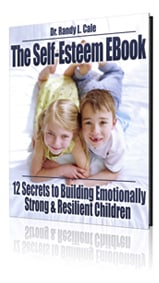The challenges of successfully schooling your child have increased considerably in the last six months. That goes without saying. But now, as schools struggle to find a safe, balanced, and effective manner to educate children, many of you are faced with novel demands. Hybrids of home and school education, combined with less structure for sports and other extra-curricular activities, creates a unique and challenging environment to raise kids successfully.
So let’s look as some options for keeping your sanity and for helping your kids to stay on track. This week we will focus on the big picture, while next week, we will drill down to the details of managing more routines at home.
The Big Picture
1) Holding Compassion While Not Endorsing the Whining
So, life is challenging now for many of you and your children. I see kids and teens who spend much of their time in complaint mode. It’s complaining about the learning model, complaints about teachers, complaints about masks, and the list goes on.
While it is essential to be compassionate, as life is atypical right now, it is equally important to stay focused only on problems that you can solve. To repeatedly grumble about the state of things, when there is nothing to do about it, is a sure-fire way to misery.
Why? Because almost all of our complaints and our kids’ complaints are focused on these uncontrollable events. And when we repeatedly put our attention on circumstances we can’t control, we end up feeling helpless. This is a breeding ground for misery and sadness.
Perhaps more importantly, this focus absorbs the attention, taking our energy away from what we can control. There are a finite number of moments in the day, and the more we focus on events that are beyond our influence, the less time to focus on what we can influence. Our sense of having some self-efficacy, or ability to impact our lives, expands as we spend more energy and time focused on events and actions that we can control.
The profound lesson here is this: You can shape this mental habit by gaining clarity. Offer a few words of compassion when your children are dealing with these novel times. But after you have done this a few times, do no continue with the compassionate approach. Instead, show no interest. If you keep responding to the repeated complaints, they will continue complaining. If you become disinterested in the repeated complaints, then they can become disinterested. That’s the way you can shape their perspective.
2) Lean Heavy On Structure as the Year Begins
The more you focus on a clear, precise, and predictable structure, the more your children will likely thrive despite the challenges of the pandemic. The more you allow them to ‘figure it out’ then the more likely academics and healthy habits will erode.
Study after study confirms this simple reality. Our bodies and our brains love predictability, and structure/routine ensures that predictability. There are a few rare children and teens who manage their own lives in a routinized way, without parental guidance. This is not the norm.
Thus, focus on a very tight structure, ensuring that bedtimes, electronics, and mornings are consistent.
3) Remember: Kids are Not Controllable. (But What They Care About Is Controllable)
Yes, children are not controllable. And yet, we can have a remarkable influence if we focus on what they care about BECAUSE we can control this. With many kids at home now, the importance of parents learning this lesson cannot be overstated. If you keep trying to control your kids with reminders, threats, demands, and louder words (because no one is listening), then chaos is just around the corner.
Yes. Just about everyone makes this mistake, and the consequences unfold on many levels for your children. But simply because your neighbors are fond of repeating themselves over and over again, it doesn’t mean you have to.
The efforts to control kids with words and demands almost always creates war, especially with pre-adolescents and teens. Why? Because no one likes to ‘be told’ what to do. No one. Even kids.
So, to avoid this mistake, focus on controlling what your children care about. That’s how you get leverage to get things done. Children quickly learn what needs to be done if they have no electronics or goodies until their work is completed. In today’s world, it’s easy to control electronics, access to friends, and access to attention. These are all within your easy control.
So, instead of a more punishment or threatening way to get things done, use leverage by controlling the goodies. Make sure the work is done before the goodies are available. And only give attention to the solid effort and good work, not the complaints and whining along the way.
In next week’s article, we take these big picture ideas and get practical. Until then, remember these fundamental ‘big picture’ ideas, and notice how you might begin to bring more ease and harmony by honoring these in your home.















